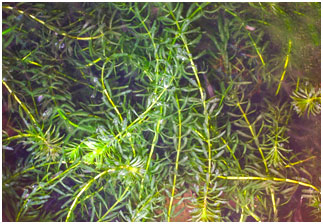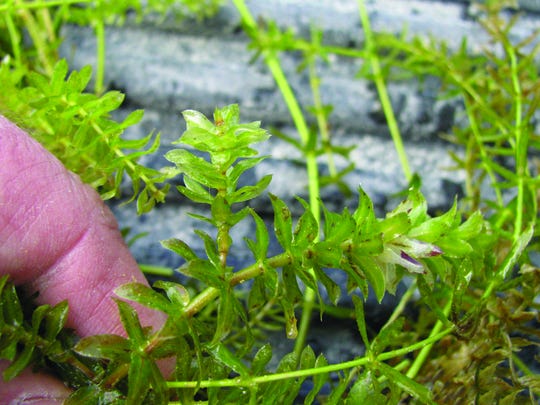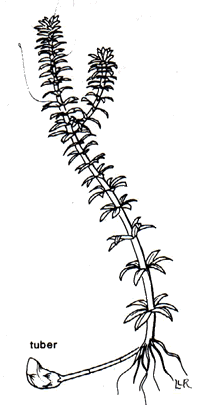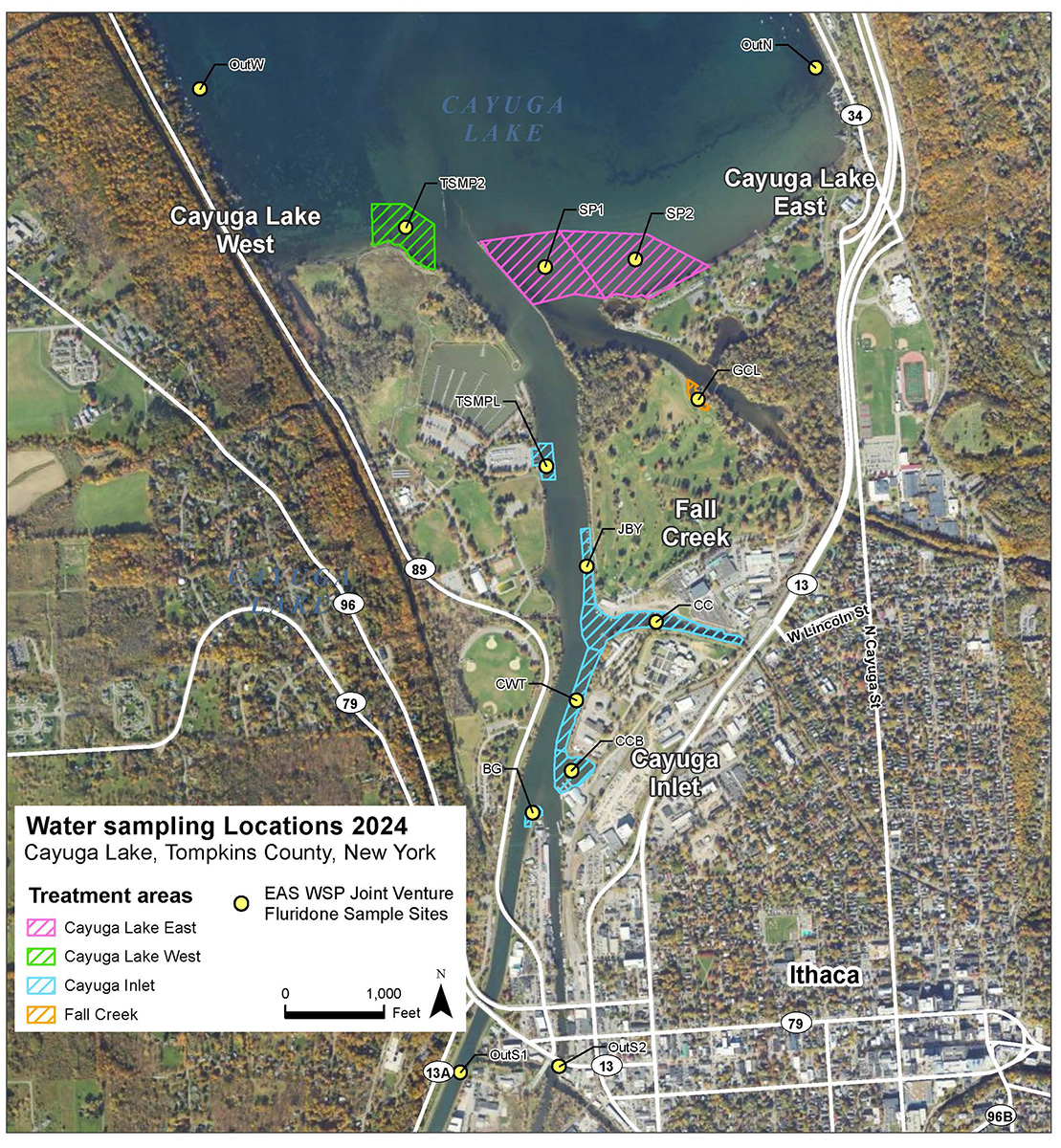About Hydrilla
 Hydrilla, an extremely aggressive aquatic plant, was found in Ithaca in early August 2011. National experts on Hydrilla and local resource managers/stewards agree that an approach including the use of herbicides is the best method to achieve eradication of Hydrilla.
Hydrilla, an extremely aggressive aquatic plant, was found in Ithaca in early August 2011. National experts on Hydrilla and local resource managers/stewards agree that an approach including the use of herbicides is the best method to achieve eradication of Hydrilla.
Total eradication is a long-term process; however the past treatment efforts have been very successful, resulting in a dramatic reduction in the number of rooted Hydrilla plants and ungerminated tubers now being observed.
Tompkins County has previously addressed Hydrilla through hand-removal, benthic barriers, and by applying herbicide (Endothall, Fluridone, and Komeen) in Cayuga Lake under permit from the NYSDEC or through the Army Corps of Engineers. (Yearly monitoring data from this initiative can be found below.)
 Fluridone is a granular systemic herbicide that will be applied at a rate of 10-20 ppm. Komeen Crystal is granular chelated copper herbicide that will be applied below the water surface at a rate of 1.0 part per million (ppm) There are no restrictions for fishing, swimming, or livestock/pet water consumption at the proposed application rates of Fluridone and Komeen. There are restrictions for using water treated with Fluridone for irrigation. The Tompkins County Health Department will continue monitoring the health of Cayuga Lake and regularly post results online. For more information, please visit the Cornell Cooperative Extension (CCE) website at StopHydrilla.org. The CCE website also has more info about Fluridone.
Fluridone is a granular systemic herbicide that will be applied at a rate of 10-20 ppm. Komeen Crystal is granular chelated copper herbicide that will be applied below the water surface at a rate of 1.0 part per million (ppm) There are no restrictions for fishing, swimming, or livestock/pet water consumption at the proposed application rates of Fluridone and Komeen. There are restrictions for using water treated with Fluridone for irrigation. The Tompkins County Health Department will continue monitoring the health of Cayuga Lake and regularly post results online. For more information, please visit the Cornell Cooperative Extension (CCE) website at StopHydrilla.org. The CCE website also has more info about Fluridone.
Questions can be directed to the Environmental Health Division at (607) 274-6688.

Quick Facts:
- Hydrilla can grow up to 30 feet long and form thick mats
- The dense vegetation can harm boating, fishing, and swimming in Cayuga Lake
- Hydrilla reduces oxygen in the water- impacting native fish and plants
- It is known as one of the “Most Invasive Species in the World”
- Hydrilla is native to Asia
What You Can Do:
- Never dispose of aquarium plants in bodies of water
- Remove plant matter from boats and other equipment before and after entering the lake
- Clean, dry, and inspect boats and equipment before moving to other bodies of water
- Identify and report sightings of Hydrilla in Cayuga Lake
Hydrilla Monitoring 2024
ITHACA

Right-click image to open full-size in a new tab.
Open and download a PDF version of the sampling locations map
For more information and details about the testing sites, visit StopHydrilla.org, hosted by Cornell Cooperative Extension of Tompkins County.

